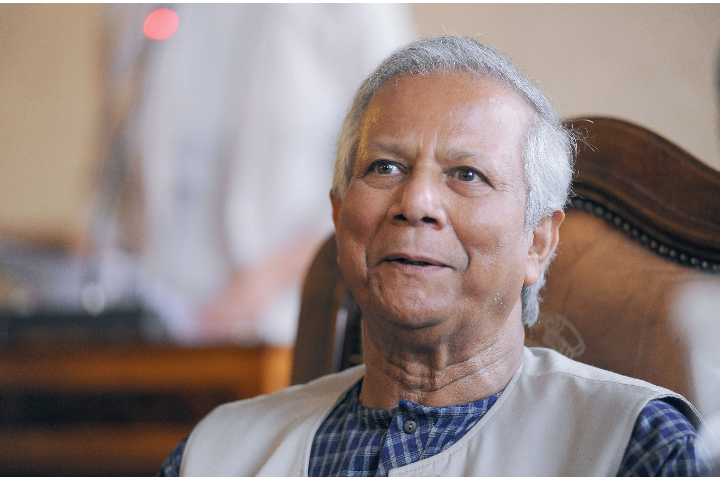
Professor Muhammad Yunus, the Nobel Peace Prize-winning founder of Grameen Bank and a pioneer of microfinance, has had a significant global influence, including in China and Bangladesh. While his direct impact on Bangladesh's capital market may not be as pronounced as his contributions to microfinance and social business, his visits to China and collaborations could have indirect effects on Bangladesh's financial sector. Here’s an analysis of the potential impact:
1. Strengthening China-Bangladesh Financial Ties
Professor Yunus’s visits to China could foster stronger economic and financial collaborations between the two countries.
Chinese investments in Bangladesh (especially in infrastructure and fintech) may increase, indirectly benefiting the capital market.
If Chinese investors gain more confidence in Bangladesh’s economy due to Yunus’s advocacy, it could lead to higher foreign portfolio investments (FPI) in the Dhaka Stock Exchange (DSE) and Chittagong Stock Exchange (CSE).
2. Promotion of Social Business & Impact Investing
Yunus has long advocated for social business models, which blend profit-making with social good.
If Chinese investors adopt this approach in Bangladesh, it could lead to more sustainable and long-term capital market investments rather than speculative trading.
This could improve corporate governance and ESG (Environmental, Social, and Governance) compliance among listed companies, making Bangladesh’s stock market more attractive to ethical investors.
3. Technology & Fintech Collaboration
China is a leader in digital finance (e.g., Alipay, WeChat Pay). Yunus’s discussions in China could encourage fintech partnerships that modernize Bangladesh’s capital market infrastructure.
Improved digital trading platforms, blockchain-based settlements, or mobile-based investment tools could emerge, increasing retail investor participation.
4. Investor Confidence & Perception
Yunus’s global reputation as an ethical economist could enhance Bangladesh’s image as an emerging market.
If he promotes Bangladesh’s growth story in China, it may attract more foreign institutional investors (FIIs) to the country’s capital markets.
5. Potential Risks & Challenges
Bangladesh’s stock market has faced volatility and governance issues in the past. Yunus’s influence alone may not resolve structural problems like market manipulation or liquidity crunches.
Chinese investments, while beneficial, could also lead to dependency or dominance in certain sectors, affecting local businesses.
Conclusion
While Professor Yunus’s visits to China may not directly transform Bangladesh’s capital market, they could facilitate financial collaborations, promote ethical investing, and enhance technological advancements—all of which could contribute to a more stable and attractive market in the long run.
Would you like a deeper analysis on any specific aspect, such as Chinese FDI trends in Bangladesh or the role of fintech?

Share This News